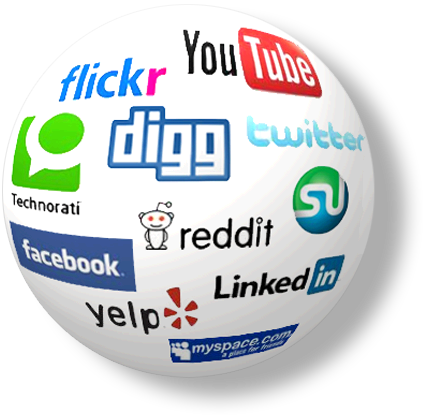Then, through ALES, I was sucked in. At first it was because I was forced to be, I'm a pre-vet student and need to keep my grades up! After a while, however, I realized I was checking my Twitter homepage when I wasn't in class! And I started following some very interesting people in my field and in areas of interest. I could hardly keep off the site, it became like my second Facebook. I soon realized how many of my friends were actually on Twitter and I became hooked. I really enjoy what most of them have to say, and the interesting things celebrities and scientists have to talk about! And Twitter wasn't the end of it. I made this blog, something I never thought I would enjoy. But it reminds me a lot of when I wrote in my diary as a kid, so I have really warmed up to the idea of blogging. There are others too, like Delicious and LinkedIn, among others, and I had the opportunity to try them all! I even struck out into the internet on my own, and found a new great site that I frequent on a daily basis, Reddit!
Innovative Nurse (2012). The Power of Social Media. Retrieved on 11 April 2012 from URL http://innovativenurse.com/wp-content/uploads/2012/01/section_social_media_marketing.png
Of course, the class wasn't all fun and games like I'm making it sound! We learned a lot of other really useful things as well to make us better communicators. For example, I learned how to make a professional CV, something I had no idea how to do. This will no doubt come in handy in my near future as I begin to apply for academic jobs. I also learned how to use Facebook professionally, I didn't even know there was that option! There were countless other things too, like learning how to interview, learning how to write professional emails, and communicating with people in your field for jobs, ideas and collaborations. Who knew all of these doors would open for me in terms of communication, I feel so connected now!
Social media is definitely taking the world by storm. Everyone I know has some sort of involvement in it, and I certainly am way more involved than I used to be. As for the title of the blog itself, I don't think I hate technology as much now that I know what it can do for me! It seems I am really able to further myself as a professional using these online sources, so I can't even say that they're a waste of time anymore. A friend of mine taking the class had some similar feelings after taking the course, here's a link to her awesome Blog post! I love what she had to say about how social media can spread ideas, like Kony 2012, around the world so quickly. Of course there were many others in the class that wrote some very insightful things throughout the term. Here are a few I have commented upon, that I really enjoyed reading!
Finals are upon us, so I am signing out for now! I'm sure I will be back to post more in the near future. Thanks for following me on my social media journey!

